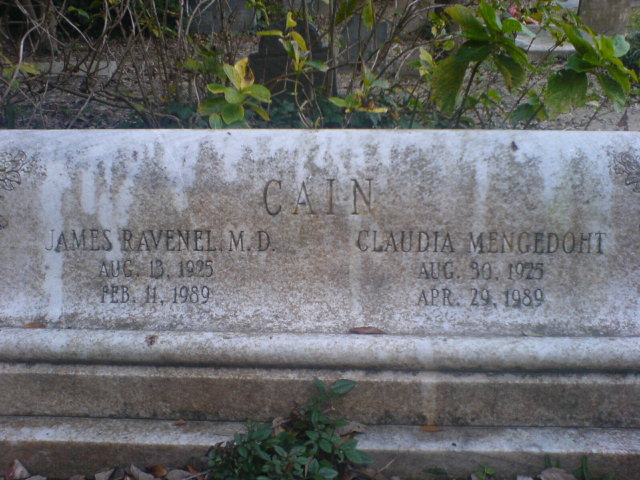The Garden (Unfinished)
The Garden
By Varo Borja
Chapter 1
The stars silhouette two bodies digging, digging furiously neath a crescent moon, the birds are silent and the mosquitoes buzz around the diggers, furious gales of micro marauders, seeking blood beneath flesh, a constant impediment to the work in progress—shovels clang and handles creak, a brook rippling nearby gurgling on towards the sea in an uninterrupted, serene stream of clear, life giving water. A raven flies across the moon, an omen not heeded, a seal unbroken. One of the diggers pauses to remove a handkerchief from his back pocket—he wipes the night sweats away, gazing at the moon and cursing silently beneath his breath. The work continues.
Her name was Dahlia. She came from a village in Carteret County where the copperheads crept through the underbrush and where the night was still cold come mid May. She fetched water and chopped wood. She milked the cows till their teets wouldn’t give another drop, then she’d slit their haggard ankles for blood to keep her and her baby from starving while the blue coats ravaged the towns and the home guard pillaged the countryside. She’d kept a garden with maters and taters and a little bit of corn, but the corn got confiscated by the home guard for home brew whiskey and the maters and taters dried up like the dust of the road that them son of a bitches in Drake’s platoon patrolled every day instead of going off to fight the North like Johnny did. Johnny was her sixteen-year-old husband who lay mangled in a mass grave somewhere this side of Vicksburg. X marked the spot where Johnny lay, half his face gone to a smoldering piece of grapeshot, the other gone to the indomitable dust. X for the flag of the fallen, rebel pride red with the blood of the children of antebellum rancor—slave blood also, fed by the same earth to which they were bound and which poured out of lashes well laid on for trespassing on the Eden of the white man—stealing a biscuit or the virtue of some lilly of the valley redolent of powder and laudanum, wrapped in calico and lace and heavy with a child that would be hushed and shushed and sold to a convent for sixpence. Blue, blue also with the tears of a million women just like Dahlia or worse, cried like the river running slowly down to New Orleans, carrying bales of blood bought white riches. White also, white stars symbolizing a pipe dream manufactured from the spine grease of blackest Africa, white hot fire in the bellies of a bullied generation of brutish gentlemen determined to see the thing to the end and selling their very souls for a chance to govern themselves, to maintain a status quo landed aristocracy built on manners and bullshit. Dust and ashes, and a pale moon without comfort, solace or a season to grieve—shit outta luck with a baby eaten up with the cholic and a bottomless belly which her milk couldn’t sate, selfless bile and a vinegar highball, the wine of regret at a tender age, nearer to death than the thin gray wraiths trickling down the road in rags and bandages, half of them shorn of legs and arms and all of them looking for succor from the soon to be reconstructed corpse of a once proud land.
Dahlia struggled for life like the desert struggled for rain—an occasional kindness from some would be suitor would keep her going until the corncrib was empty again. Her baby that she’d never named died on an August afternoon, his ribs showing like a Mannerist Christ child, elongated and fleshy substance that just gave up in its grasping for sustenance, a pieta redolent with pathos and her tears streaming down on his head, then drying into a hardened resolve, turning first from utter despair to anger to a deadness within her that couldn’t be revived by the blood of anyone on any tree set upon a hill which meant nothing to her now anyway. She started walking the road after that, lurking in the shadows and becoming the substance of dreams or the nightmares of children tucked away beneath covers that never knew the embattled night terrors of worry, anxiety, remorse or dread. She’d pass the stragglers in the night--worn out gypsies from the war and half crazed, half caste colonels on old ragged roans littering up the byways with their brokenness in full view even beneath a sky with no moon and barely a star to guide them home. One eye that she didn’t escape was the captain of the ill-named home guard, Drake. Half demon, half vulture perched above the heads of the simple country folk with his two big Colt pistols that he could use to full advantage whenever his purposes boded dark and ominous which was any time that he was awake. He could shoot the eyes out of coon at fifty paces and he’d indiscriminately murdered and raped his was to the throne of the county—throats slit beneath coverlets, secret hangings in the afterdark woodlands reminiscent of black Sabbaths, a bullet in the back or a dagger in the dusk were his tools of the trade, all presided over by the man in control of the spiritual clime of the countryside: Reverend Powers. Reverend Powers was a black robe Baptist who had appeared, it seemed, from thin air one Sunday riding a pale horse with his three wild niggers in tow, toting all sorts of flim flam finery from his fictional homeland of Alabama. No one really knew where Reverend Powers had come from, but with his fiery sermons about the continuance of the war effort and the evils of fornication and abolition and the mongrelization that would be imposed upon God fearing farmers by the Northern, atheistic usurpers to the rightful place of the white man, he had struck a chord of terror into the heart of the locals that appealed to their darkest dreams and most perverse wishes to preserve the chastity of mother South from the advances of her rapist Brother. Reverend Powers had had his eye on Dahlia as well—he called her demon possessed and lunatic and in need of the saving grace of the lamb, but in his heart he desired her with a voracity comparable only to that of a starving lion.
If Reverend Powers was the will of the dragon devouring the county from the inside out and Drake was its teeth, then its claws were the ever present threats of hunger and pestilence, the fruit of a tree of thorns nourished by the blood of innocents and the cries of the fallen. Dahlia was the maiden offered up for sacrifice—bereft of purpose and the capacity for hope, succored only by the dew of the fields and the kindness of strangers whose hospitality was already stretched to a thinner strand than could withstand the fresh onslaught of refugees and ragamuffins pouring into Carteret county riding the red tide of defeat.


